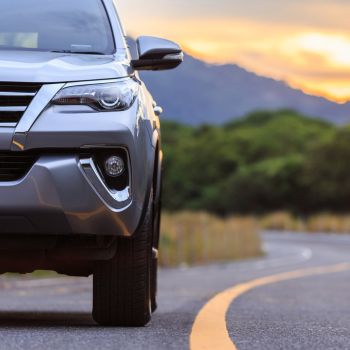 Today, cars are built to last longer and drive more miles. But even with modern technology, many drivers find themselves spending more on fuel and maintenance. If you're experiencing poor fuel economy, it's important to understand the possible causes and how to address them.
Today, cars are built to last longer and drive more miles. But even with modern technology, many drivers find themselves spending more on fuel and maintenance. If you're experiencing poor fuel economy, it's important to understand the possible causes and how to address them.
Poor Fuel Economy and Engine Issues
There are several engine-related reasons why your car might be using more gas than usual. Here are some of the most common culprits:
- Damaged or Clogged Fuel Injectors: These components spray fuel into the engine. If they’re dirty or faulty, the fuel delivery becomes inefficient, leading to higher consumption and lower performance.
- Dirty Oxygen Sensor: This sensor helps regulate the air-to-fuel ratio. A faulty one can trick the engine into running richer (more fuel), which reduces efficiency.
- Malfunctioning Mass Airflow Sensor: This part measures the amount of air entering the engine. If it’s not working properly, the engine may get too much or too little fuel.
- Old or Clogged Air Filter: A dirty air filter restricts airflow, making the engine work harder and use more fuel. Replace it every 15,000 to 30,000 miles, depending on your vehicle.
- Clogged Fuel Filter: This filter keeps debris out of the fuel system. If it's clogged, fuel flow is restricted, affecting both performance and fuel efficiency.
- Worn Piston Rings: These help seal the combustion chamber. When worn, they allow oil to enter the combustion area, reducing efficiency and increasing fuel use.
- Oil Problems: Using the wrong type of oil or letting it become old and dirty can increase engine friction, leading to higher fuel consumption and wear.
- Ignition System Issues: Faulty spark plugs or ignition coils can cause misfires, leading to poor combustion and worse fuel economy.
Other Factors That Affect Fuel Efficiency
Beyond the engine, other parts and habits can also impact how well your car uses fuel:
- Tire Pressure: Underinflated tires create more rolling resistance, forcing the engine to work harder and use more gas.
- Brake Problems: Sticking brakes add drag, which increases fuel usage over time.
- Wheel Alignment: Misalignment causes uneven tire wear and increased resistance, both of which reduce fuel efficiency.
- Driving Conditions: Cold weather, heavy loads, and frequent short trips can all lead to higher fuel consumption.
- Vehicle Age: Even with regular maintenance, older cars tend to lose efficiency as parts wear down.
- Idling: Leaving your car running when parked uses fuel unnecessarily, especially in colder months.
If you're worried about your car's fuel economy, don't ignore the signs. At DaSilva’s Auto Body, our experienced technicians can run a full diagnostic test to pinpoint the issue and recommend the right solution. Whether it's a simple fix or something more complex, we’re here to help you save money on gas and keep your vehicle running smoothly. Contact us today to schedule an appointment!
95% Alumina Ceramic
95% Alumina Ceramic,Custom 95% Alumina Ceramic,Alumina Production Line,95% Alumina Ceramic Rod
Yixing Xiangyang Jiujiu Chinaware Industry Co., Ltd. , https://www.xyjjceramic.com
July 09, 2025
 Today, cars are built to last longer and drive more miles. But even with modern technology, many drivers find themselves spending more on fuel and maintenance. If you're experiencing poor fuel economy, it's important to understand the possible causes and how to address them.
Today, cars are built to last longer and drive more miles. But even with modern technology, many drivers find themselves spending more on fuel and maintenance. If you're experiencing poor fuel economy, it's important to understand the possible causes and how to address them.